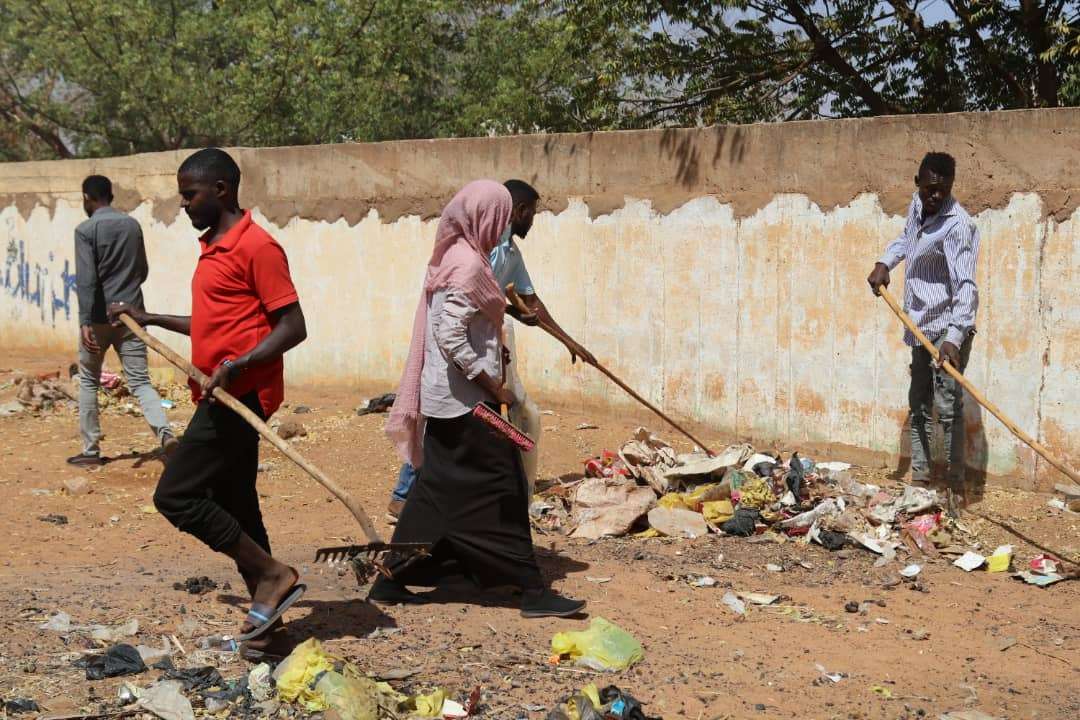
To successfully respond to urgent community priorities emerging from the ongoing conflict in Sudan, groups of civic-minded individuals are working together to help each other answer to growing humanitarian crises. Women’s associations, youth organizations, and emergency response rooms depend on close community engagement for both resources and impact, in order to address such challenges as mass displacement, disease outbreaks, and communal violence. USAID OTI STEP-UP, implemented by DT Global, is helping these groups to organize and mobilize their communities, increasing their outreach, their resources, and their impact.
To support these frontline groups and respond to growing crises in a context in which few other organizations can operate, STEP-UP established six neighborhood committees in Sudan’s Greater Kordofan region. These committees strengthened the groups’ ability to mobilize communities into pro-change movements, and to address community challenges.
“USAID has provided us with a valuable platform for us to connect with previously inactive youth,” says Abdelaziz, a 26-year-old member of one of the emergency response rooms (note, all names have been changed). “Across various neighborhoods, we successfully established committees to support internally displaced persons and address other community issues. These committees are operational and poised to serve as the foundation for neighborhood centers. They have even formed an additional 15 youth centers across different neighborhoods, coordinating and implementing activities related to community needs.”
These six new committees have mobilized youth in their communities into timely civic action, including the cleanup of camps for newly displaced persons, health awareness events to address specific health challenges in each community, and cultural events that build social cohesion to counter divisive and polarizing narratives of hate.
Mahmoud, a 24-year-old emergency response room member, and focal point for one of the IDP camps in the region, emphasized the importance of fostering trust and acceptance within his community."
Previously, our resistance committee initiatives struggled to garner full community engagement,” he says. “But USAID equipped us with materials and tools to engage youth across 15 neighborhoods and six IDP camps, in activities such as cleaning and health awareness campaigns. Our cultural events are serving as a platform to showcase the diversity of our communities and heritage, reinforcing community bonds and inclusivity while others seek to divide us.”
Azim, aged 31, manages a youth center in Greater Kordofan, and leads a network of mutual aid groups in the region. "When conflict broke out, the youth united to assist their communities, but their efforts were impeded by a lack of coordination and communication skills, stemming from their limited experience. USAID’s support was pivotal in refining these skills, empowering them to efficiently involve more communities in offering aid to IDPs. As a result, they effectively administered 11 IDP camps through community-driven efforts.”
Hala, a community member impressed by the group’s initiatives, stressed the importance of recognizing IDPs as vital members of the community. “IDPs deserve our assistance,” she emphasized. "The active engagement of youth, myself and others, provided food and drinks and other essential supplies to the IDPs.”
Increasing community engagement is critical for securing the resources and human capital needed for grassroots responses to the growing humanitarian crises in Sudan.